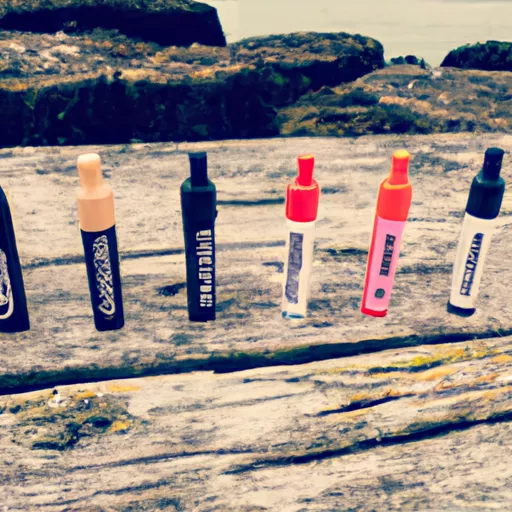
Vaping, or the use of electronic cigarettes, has become a popular trend worldwide in recent years. The practice of inhaling and exhaling vapor from an e-cigarette has gained significant momentum, not just among traditional smokers looking to quit, but also among young adults and non-smokers. As a resident of New Zealand, which is often referred to as “Vape NZ” due to its high usage of e-cigarettes, I have witnessed firsthand the rising popularity of vaping in my country. In this article, I will provide an overview of e-cigarettes in New Zealand, including its legality, regulations, and usage.
E-cigarettes were first introduced to the New Zealand market in the early 2010s. Since then, their usage has skyrocketed, with an estimated 203,000 adults reporting using e-cigarettes in 2018. The primary reason for the rise of e-cigarettes in New Zealand can be attributed to its effectiveness as a smoking cessation tool. Unlike traditional cigarettes, e-cigarettes do not contain tobacco but instead heat a liquid containing nicotine, allowing smokers to satisfy their cravings without the harmful toxins found in tobacco smoke. This has made e-cigarettes a popular alternative for smokers trying to quit.
One of the main reasons why e-cigarettes have become so popular in New Zealand is because of the country’s progressive approach towards harm reduction. In 2018, the government introduced the Smokefree Environments and Regulated Products (Vaping) Amendment Act, which aims to regulate and promote the use of e-cigarettes as a less harmful alternative to smoking. Under this legislation, it is legal to buy, sell, and use e-cigarettes in New Zealand, as long as they do not contain nicotine or are approved by the Ministry of Health. This means that nicotine-containing e-cigarettes can only be legally sold in New Zealand if they are approved under a therapeutic purpose, such as smoking cessation.
Unlike many other countries, New Zealand has taken a liberal stance towards e-cigarettes, recognizing its potential as a harm reduction tool. However, there are still regulations in place to ensure that e-cigarettes are used safely and responsibly. For instance, under the amended legislation, e-cigarettes cannot be advertised, promoted, or sold to minors, and there are restrictions on where e-cigarettes can be used in public spaces.
While e-cigarettes are not yet regulated as heavily in New Zealand as traditional tobacco products, the Ministry of Health has signaled that stricter regulations may be put in place in the future to address concerns about youth and non-smokers taking up vaping. In line with this, the New Zealand Parliament has recently passed a bill that aims to restrict the sale of e-cigarettes and other vaping products to young people, tighten advertising and promote regulations, and set standards for product quality and safety.
As a resident of New Zealand, I have noticed a significant shift in public perception towards vaping. While there was initially some skepticism and concern surrounding e-cigarettes, there has been a gradual acceptance of its usage, backed by the country’s progressive attitude towards harm reduction. In addition, many vape stores and online retailers have emerged, providing a wide range of products, from starter kits for new vapers to advanced devices for experienced users. E-cigarettes in New Zealand are now easily accessible and come in a variety of flavors, such as tobacco, fruit, and dessert.
While e-cigarettes have been widely accepted in New Zealand, there are still concerns about its potential long-term health effects. While it is generally accepted that vaping is less harmful than smoking, there is limited research available on the long-term effects of e-cigarette use. However, Public Health England conducted a review in 2015 which found that e-cigarettes are 95% less harmful than traditional cigarettes. Nonetheless, the Ministry of Health recommends that non-smokers and youth should not start vaping, and that smokers should ultimately aim to quit all nicotine use, including vaping.
In conclusion, e-cigarettes have become a popular smoking cessation tool in New Zealand, known as the “Vape NZ” culture, largely due to the country’s progressive approach towards harm reduction. With its increasing acceptance and accessibility, e-cigarettes are likely to continue to gain popularity among traditional smokers, as well as non-smokers. However, it is essential to note that while e-cigarettes may be a less harmful alternative to traditional smoking, they still require regulation and responsible usage to ensure the safety of individuals and the community.